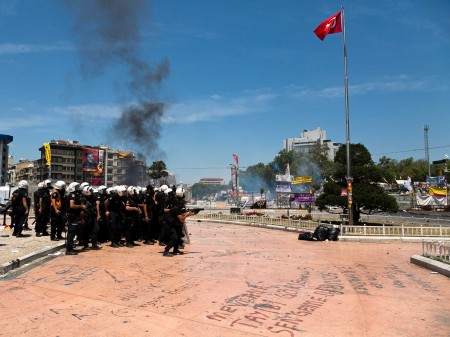
Turkey’s Prime Minister Recep Tayyip Erdoğan and his Justice and Development Party (AKP) have had significant successes since coming to power in 2002. Erdoğan rescued Turkey’s economy, which had been reeling. He established Turkey as a world power, increasing its influence on the world stage. He also brought Turkey’s abusive military and bureaucratic establishment to heel. Turkish voters welcomed Erdoğan’s charismatic leadership and gave the AKP a mandate in three national elections. So, it was a surprise when demonstrations over a commercial development project in Istanbul’s Taksim Square spiraled into violent protests in 60 cities across the country. Why are Turks so angry?
Erdoğan’s polarizing personality is largely to blame. His arrogance and hubris make him a lightning rod for controversy. Police brutality, including the use of tear gas and water cannon, has enraged protesters adding fuel to the fire. Instead of taking on board their concerns, Erdoğan impugned them as thugs, hooligans, and looters. Erdoğan has become increasingly authoritarian, acting more like a sultan than a public servant.




